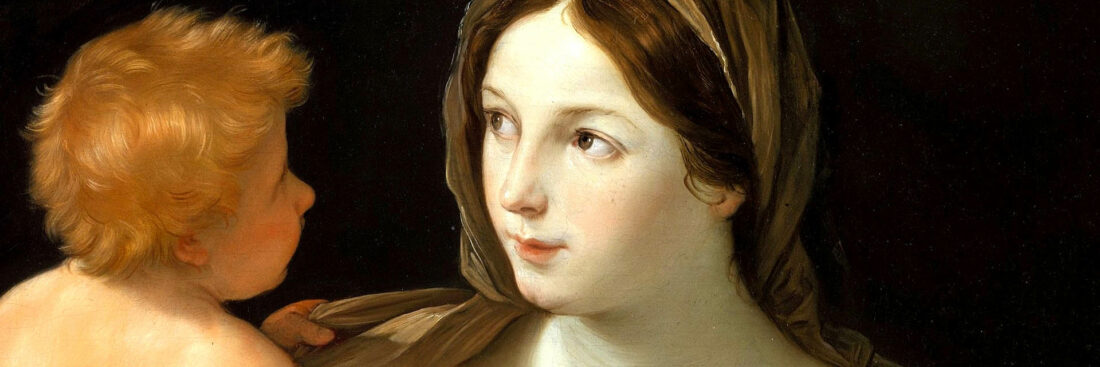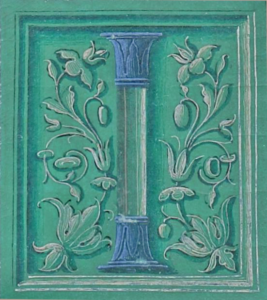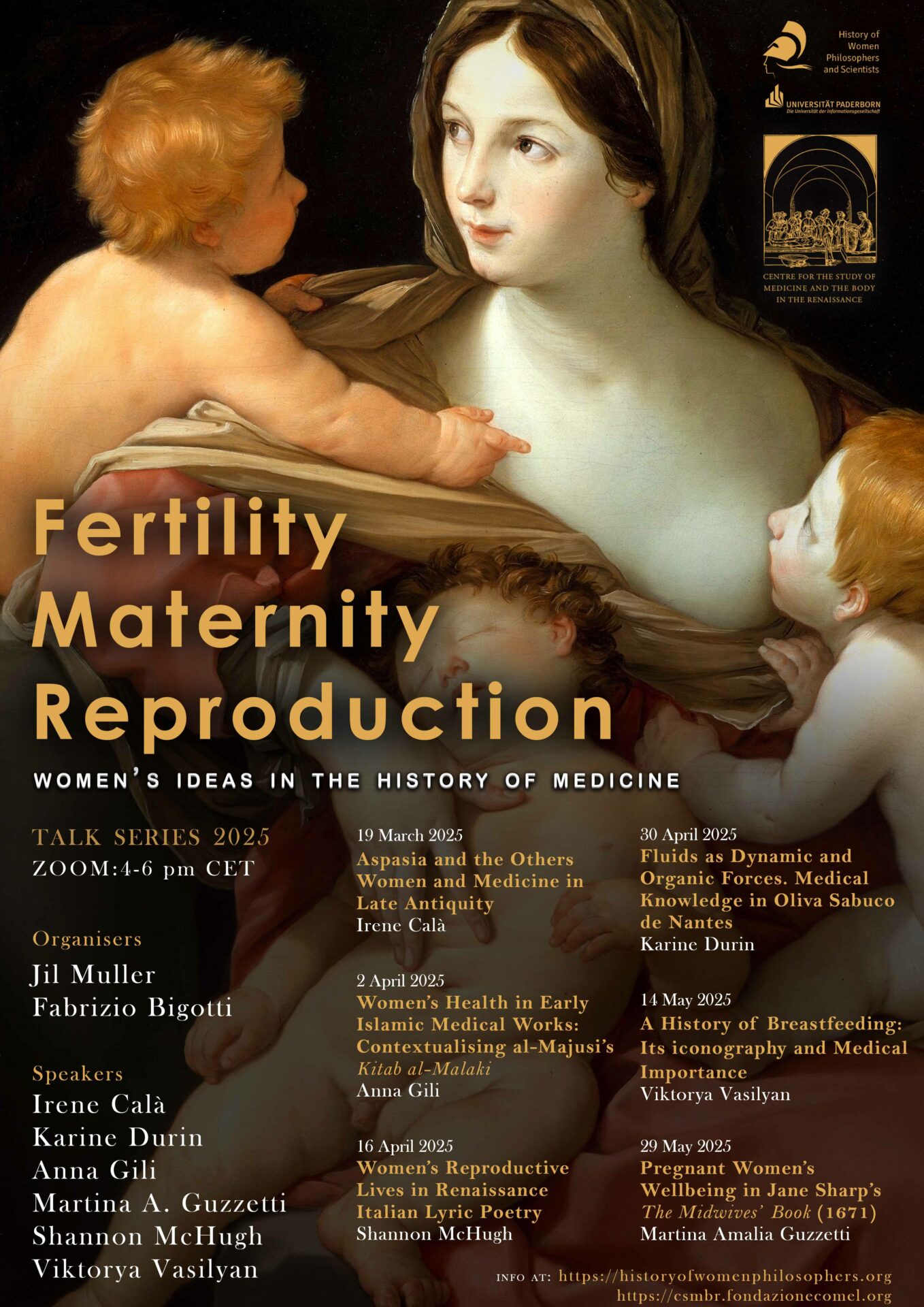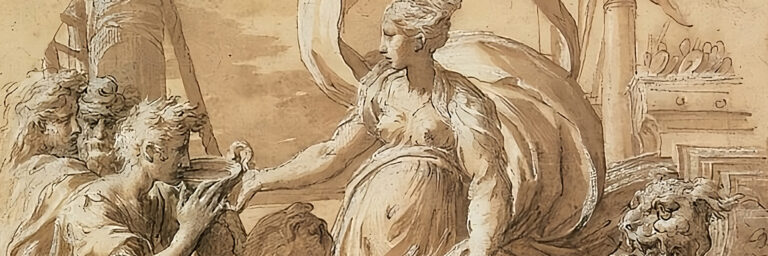Women’s Ideas in the History of Medicine

Women's Ideas
in the History of Medicine
Fertility, Maternity, and Reproduction
2025 Webinars Series
Organised by
Jil Muller
Fabrizio Bigotti
Organised in collaboration with the Centre for the History of Women Philosophers and Scientists – University of Paderborn, this series seeks to understand the role of women in the history of medicine by exploring their contributions in fields such as natural philosophy, household remedies, plant manipulation and selection, as well as midwifery.



Aspasia and the Others: Women and Medicine in Late Antiquity
Irene Calà
19 March 2025 – 4.00 PM (CEST)
Medical texts from Late Antiquity are invaluable for our understanding of lost medical sources. This is particularly true for the medical work of Aetius, a physician native to Amida, lived in the first half of the sixth century AD, and author of a 16-book treatise known as Libri medicinales. This compilation is considered one of the most significant and source-rich works of its time. While female sources in medical texts appear quite limited or entirely absent—such as in the works of Oribasius of Pergamum—they undoubtedly represent one of the primary sources for the last of the Libri medicinales, where Aetius lists a certain Aspasia as a specialist in various medical practices related to gynaecology and obstetrics.
The prominence of Aspasia seems, at times, to overshadow that of the more renowned Soranus of Ephesus, who is considered the foremost authority on women’s diseases. From this observation, we will attempt to trace the remnants of a medical literature written by women, echoes of which are preserved in the medical texts of Late Antiquity. The selected passages related to fertility, pregnancy, and childbirth management will be discussed, highlighting the physical and psychological approach that characterizes Aspasia’s medical practice and the concrete role played by women in the care of women.
About the Speaker…
Irene Calà is research associate at the Institute for Ethics, History, and Theory of Medicine at Ludwig-Maximilians-Universität München. She is specialist of Greek medicine in Late Antiquity, with a focus on the continuity of medical knowledge from antiquity through the Renaissance. She is currently working on the first critical edition of the unpublished books of Aetius of Amida, in the DFG project led by Mathias Witt.

Women’s Health in Early Islamic Medical Works: Contextualising al-Maǧūsī’s "Kitāb al-malakī"
Anna Gili
2 April 2025 – 4.00 PM (CEST)
Al-Maǧūsī, a Zoroastrian physician from the Fārs province, composed his Kitāb al-malakī during the second half of the tenth century. This medical encyclopaedia in ten books which aims to synthesizes and systematizes all earlier medical knowledge into a unified whole also devotes great attention to women health issues. Al-Maǧūsī’s analysis encompasses topics such as foetal formation, growth, and female anatomy along gynaecological diseases, the diet of pregnant women and the role of midwifes, while also examining cures for gynaecological ailments and specific surgical operations.
Based on the assumption that the Kitāb al-malakī should be studied as an organic treatise, my talk will present an overview of how and why reproduction, maternity, and fertility were considered relevant in the tenth century. I will also be assessing to what extent the Kitāb al-malakī relies on earlier sources and which innovations are contributed by al- Maǧūsī himself.
About the Speaker…
Anna Gili is a PhD student in Latin and Arabic philology at the University of Padua and the Julius-Maximilians-Universität Würzburg (cotutelle de thèse). Her main research interest is the transmission of medical knowledge from Greek into Arabic and from Arabic into Latin during the Middle Ages. Her PhD project aims to critically edit and study the books on pathology in the medical encyclopaedia al-Kitāb al-Malakī, composed by ʿAlī ibn al-ʿAbbās al-Maǧūsī (10th c.) and in its two Latin translations, namely the Pantegni by Constantine the African and the Liber regalis by Stephen of Antioch.

Women’s Reproductive Lives in Renaissance Italian Lyric Poetry
Shannon McHugh
16 April 2025 – 4.00 PM (CEST)
What can a sonnet teach us about the history of women’s reproductive bodies? For the early modern world, notions about pregnancy and childbirth have been well documented by historians, who have combed through archival and print materials composed by the period’s medical, religious, and humanist authorities. Literary texts, however, have been consulted less, including lyric poetry; short, emotional poems are not normally among the historian’s go-to objects. Yet lyric is rife with representations of motherhood. Examples appear in verse written in vernacular and in Latin, in poems of Marian worship and of autobiographic account, such as the prolific poet Francesca Turina (1553–1641), who composed numerous poems on miscarriage, childbirth, and early motherhood.
The details captured in her descriptions both complicate standard historical narratives and flesh out our understanding of family practices in this period, shading in scholarly models with affective dimensions. This paper expands our understanding of the history of women’s reproductive autonomy by tracing depictions of pregnancy, abortion, miscarriage, birth, and nursing in Renaissance Italian lyric poetry. Unlike texts by medical and theological authorities, lyric provides access to personal experience and can do so on a wider scale: it was the most democratic of literary genres, practiced by men of various social stripes, and, in early modern Italy, by numerous women.
About the Speaker…
Shannon McHugh is Assistant Director of Research at The Huntington Library. Her research focuses on early modern Italian and French lyric poetry and gender. Publications include Petrarch and the Making of Gender in Renaissance Italy (Amsterdam UP, 2023) and the co-edited volume Vittoria Colonna: Poetry, Religion, Art, Impact (Amsterdam UP, 2021). She was the 2023–24 Molina Fellow in the History of Medicine at The Huntington, where she researched her current book project, “Women’s Reproductive Lives in Renaissance Lyric Poetry.”

Fluids as Dynamic and Organic Forces. Medical knowledge in Oliva Sabuco de Nantes
Karin Durin
30 April 2025 – 4.00 PM (CEST)
This talk will examine the study of organic fluids and movements in the Nueva filosofía de la naturaleza del hombre, published by Oliva Sabuco de Nantes in 1587. The representation of the internal anatomy shows the dynamics that flow back and forth, combining the power of emotions and affects, the processes of digestion and the influence of the environment, all of which are expressed in Sabuco’s vision through the ebb and flow of movements of growth and decay. The categories of dry and wet are themselves governed by the emotions, in particular tristeza y descontento, when the soul and body are in discord. The regulating role of the emotions on the movement of fluids and even on the principles of digestion brings us back
back to the centre of the vital composition, which for Sabuco is the brain. From then, the flow of fluids in all their forms (milk, semen, bile, gastric fluid, tears, white blood, chyle) led us to follow Sabuco’s project of medical reform. But what happens in this text with the legacy of ancient and galenic physiology’s theories on fluids and humours? What philosophical interpretation stems from this interpretation of the bodily fluidity, which affects men, women and animals equally? The bodily fluidity in Sabuco gives rise to a rich metaphorical expression and highlights a vitalism correlated with a global vision of society whose reform project concludes the 1587 work.
About the Speakers…
Karine Durin is Full-Professor at the University of Nantes (France). She is a specialist of intellectual history in the Early Modern Iberian World. She recently published a chapter on Sabuco de Nantes, between Epicureanism and Stoicism (“A Female Dissenter in Counter-Reformation Spain”, De Gruyter, 2024) and a contribution on feminine reading of Baltasar Gracián in XVIIth century France (Classiques Garnier, 2024). She is currently working on the first translation of Sabuco’s treatise in French.

A History of Breastfeeding: Its Iconography and Medical Importance
Viktorya Vasilyan
14 May 2025 – 4.00 PM (CEST)
During human history, infants were fed human milk for survival, either through breastfeeding by their mothers or adoptive breastfeeding by other women. From antiquity to today, breastfeeding has been valued, reflected in mythology, philosophy, art, and religion worldwide. In ancient Armenia, it was prized for its health benefits, with wet nurses serving the upper classes while rural women breastfed for economic reasons. Colostrum was once deemed harmful but gained recognition in 1699 through Michael Ettmüller. During the European Renaissance, breastfeeding saw renewed appreciation in art, with depictions like suckler Lady and suckler Eve symbolising respect for motherhood.
Figures such as Hildegard of Bingen and Regina Areshian, founder of the Research Center of Maternal and Child Health Protection in Armenia, studied maternal hygiene and wet nursing. This work explores sociological, medical, and moral treatises on these themes, informed by research on the Virgo Lactans and Virgin of Humility. Iconography studies, such as those by Williamson, Sperling, Rivera, and Bergmann, provide critical insights into the Eve-Mary relationship and sacred images, though scholarly consensus on breastfeeding and wet nursing in the Middle Ages remains elusive.
About the Speaker…
Viktorya Vasilyan holds a PhD in History and serves as a researcher and the head of the Scientific Organisational Department at the Institute of Archaeology and Ethnography, NAS RA. Additionally, she is a lecturer at the Traditional Medicine University of Armenia. Currently, she manages the “100 Archaeological Monuments of Armenia” project, an initiative aimed at exploring and documenting significant archaeological sites across the nation. More information about this project is available at https://ama100.am/en. She is also honoured to serve as a Goodwill Ambassador for Peace, Human Rights, and Humanity with the IHRO in Armenia.

Pregnant Women’s Wellbeing in Jane Sharp’s "The Midwives’ Book" (1671)
Martina Guzzetti
29 May 2025 – 4.00 PM (CEST)
Women’s health, wellbeing, and medical conditions have always been at the centre of gendered debates concerning, among other things, who has the necessary knowledge and authority to discuss and provide advice about them. Of the many branches of medicine involved in these debates, midwifery certainly holds a prominent position: in particular, between the seventeenth and eighteenth centuries, these controversies saw the rivalry between midwives and the emerging men-midwives encapsulated in their own publications. While men’s textbooks on midwifery were limited to the description of women’s anatomy and the discussion of the birth event itself (without taking into consideration what happened to women before, during, and after pregnancy), the midwives’ manuals offered a different point of view,
that is, one of a skilled practitioner (despite the misogynist stereotypes) who could also share with her patients the same experience, thus having access to a kind of knowledge which went beyond the purely technical one. This contribution deals in particular with Jane Sharp’s The Midwives’ Book (1671) and offers to focus precisely on an aspect often overlooked in men’s textbooks, that is, pregnant women’s wellbeing, be it physical and/or mental. The analysis considers the creation of discourses related, for example, to factors helping the conception of a child, to easing labour, and to preventing diseases after childbirth. In the discussion, particular attention will be devoted to the peculiar connection between midwives and pregnant women, and to the references to professional and private experience used to back up such knowledge.
About the Speaker…
Martina Guzzetti is a Post-Doctoral Researcher and Lecturer of English Language and Linguistics at the University of Insubria and the University of Milan. Her research is based around language and gender studies in historical perspective, with a focus on news discourse, lexicography, and the popularisation of medical knowledge. She is currently working on a project about pregnant women’s wellbeing in midwifery manuals and domestic dictionaries.
About the Organisers...
Jil Muller is Deputy Head of the Center for the History of Women Philosophers and Scientists, in Paderborn and Assistant Professor for philosophy. Her research especially focuses on French Women Philosophers and Scientists in the early modern period. In 2022 she has published her book Soigner le corps humain. Péchés et remèdes chez Montaigne et Descartes with Classiques Garnier.
Fabrizio Bigotti is the Founding Director of the CSMBR Pisa, Research Fellow at the Julius Maximilian University of Würzburg, and Affiliated Scholar at the Department of History and Philosophy of Science (HPS) – University of Cambridge. He has published on various aspects of the history of medicine, science, and technology from Aristotle to the 18th century.




